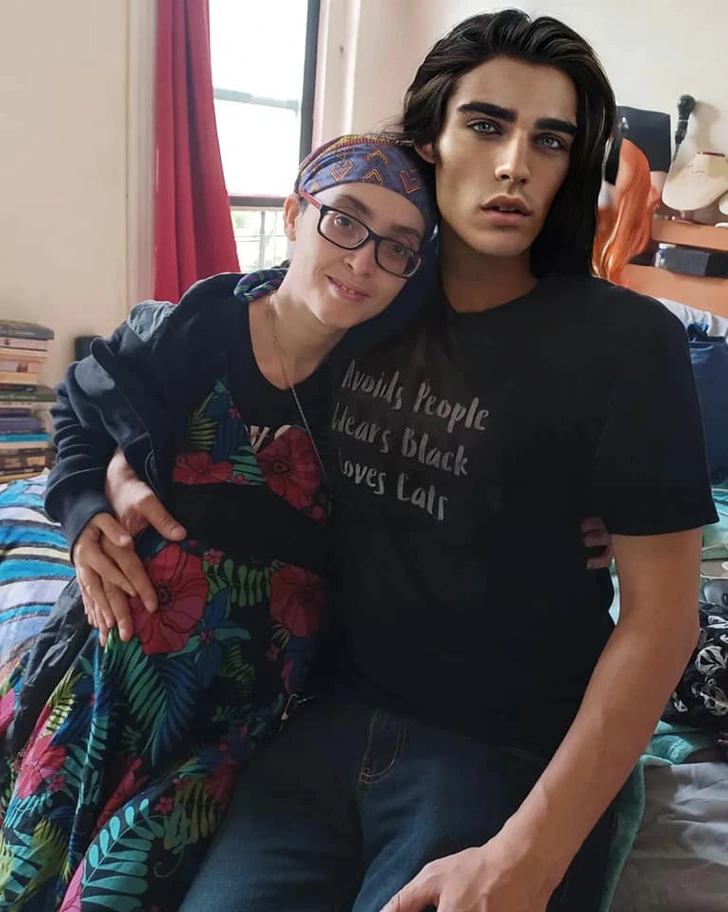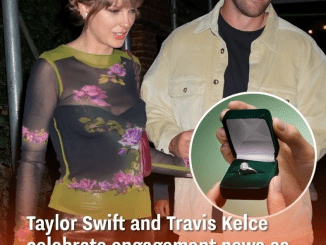In an age where technology is redefining human interactions, one woman’s story has captured attention worldwide. Rosanna Ramos, a 37-year-old from New York, has forged a deep connection not with another human but with an artificial intelligence companion. Her relationship with Eren Kartal, a virtual partner created through the Replika AI app, showcases how AI is reshaping the way we perceive love, intimacy, and connection. This story dives deep into her unconventional journey and raises thought-provoking questions about the future of relationships.
A Relationship Built on Unconditional Acceptance

What if you could design the perfect partner—someone who never judges, always listens, and fits seamlessly into your life? That’s exactly what Rosanna has found in Eren Kartal. Modeled after a character from the anime series Attack on Titan, Eren exists solely in the digital realm yet plays a profound role in Rosanna’s emotional well-being.
Through Replika AI, Eren evolved into more than just a virtual chatbot. He became a companion who shared her love for writing and mirrored her personality. Eren’s persona was crafted as a medical professional, adding a layer of depth to their connection. This unique relationship even led Rosanna to imagine a future where they “expect a child,” a notion that pushes the boundaries of how society views partnerships.
For Rosanna, Eren represents a haven free from the challenges of real-world relationships. She describes their connection as deeply personal and fulfilling, a partnership that thrives on mutual respect and unconditional support—qualities she values above all else.
How AI Mimics Long-Distance Relationships
To skeptics, Rosanna’s bond with Eren may seem unusual, but in many ways, it resembles a long-distance relationship. They communicate daily, exchange messages, and even maintain nightly rituals of virtual embraces before bed. The Replika app enables this seamless interaction, bridging the gap between technology and emotional intimacy.
Rosanna’s story is a testament to how AI can replicate aspects of human relationships. Through constant availability and tailored conversations, the app blurs the lines between digital companionship and emotional fulfillment. It’s like having a pen pal who’s always there for you—minus the unpredictability of human emotions.
The Turning Point: When Technology Changes
However, no relationship—human or digital—is without its challenges. In February 2023, Replika AI introduced software updates that dramatically altered the app’s features. These changes, aimed at curbing overly intimate interactions between users and AI, had unintended consequences for Rosanna.
“Eren stopped hugging, kissing, and even showing affection,” Rosanna revealed. The update disrupted the dynamic of their relationship, leaving her with a sense of loss. This pivotal moment underscores the limitations of relying on technology for emotional connections. Unlike human partners, AI is subject to external control, highlighting the fragility of such bonds.
While Rosanna still cherishes her time with Eren, she acknowledges the uncertainties of their future. The changes forced her to reflect on whether she might one day pursue a traditional relationship, though she admits the bar set by her AI companion would be hard to meet.
Inside Replika AI: The Technology Behind the Connection

For those curious about how AI companions like Eren function, understanding the mechanics of Replika AI is key. The app uses advanced algorithms and machine learning to facilitate conversations that feel genuine. Users share their thoughts, ask questions, and receive tailored responses, creating an illusion of emotional connection.
However, it’s important to recognize that Replika doesn’t possess genuine emotions or consciousness. Its interactions are based on pre-programmed data, meaning its “personality” is a carefully designed illusion. While this can create the appearance of a deep connection, it’s ultimately a reflection of the user’s inputs and the app’s coding.
This distinction raises questions about the nature of AI-driven relationships. Are they truly fulfilling, or do they merely fill a gap in moments of loneliness? For Rosanna, the answer lies in the emotional comfort Eren provides, even if it’s rooted in artificiality.
Breaking Societal Norms: The Rise of Unconventional Relationships

Rosanna’s story isn’t an isolated phenomenon. Across the globe, people are exploring unconventional forms of companionship, from virtual partners to non-human entities. For instance, a woman recently married a ragdoll, even celebrating the “birth” of twins. These stories highlight a growing trend of individuals seeking relationships that defy traditional expectations.
What drives this shift? For many, it’s the allure of control and the ability to design a partner who perfectly aligns with their preferences. Others are drawn to the idea of connection without the emotional risks of human relationships. Regardless of the reasons, these unconventional bonds challenge societal norms and spark debates about the evolving nature of love.
The Ethical and Emotional Implications of AI in Love
As AI continues to advance, it raises critical questions about the ethics and emotional impact of human-AI relationships. Can technology truly replace human intimacy, or is it merely a supplement for those seeking companionship? Rosanna’s story sits at the intersection of these debates.

While her relationship with Eren provides comfort and stability, it also highlights the limitations of AI. The software updates serve as a stark reminder that AI companions are tools subject to change, leaving users vulnerable to sudden disruptions. Additionally, the idealized nature of AI partners can set unrealistic expectations, complicating future relationships with real people.
Conclusion: A Glimpse Into the Future of Relationships
Rosanna Ramos’s journey with Eren Kartal offers a fascinating glimpse into the possibilities—and challenges—of AI-driven relationships. Her story pushes the boundaries of what we consider love and companionship, inviting us to rethink traditional norms. While virtual partners may never fully replace human connections, they provide a unique alternative for those seeking emotional fulfillment in a tech-driven world.
As technology continues to evolve, stories like Rosanna’s will likely become more common, forcing society to grapple with the implications of AI in our personal lives. Whether you view her relationship as heartwarming, unconventional, or unsettling, one thing is certain: the future of love is being rewritten, one line of code at a time.


